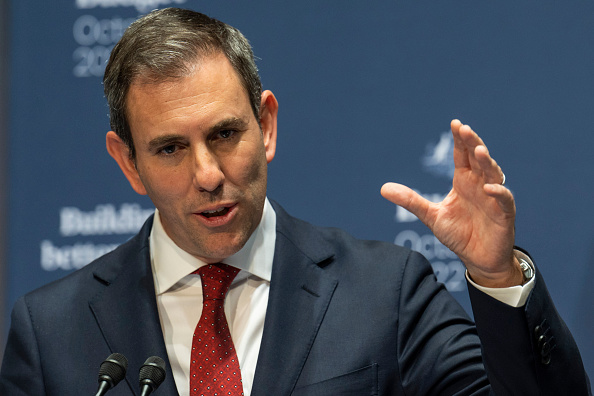New Year’s Resolutions Financial Advisors Wish Clients Would Make
Every financial advisor knows the feeling of having their good advice ignored. Clients splurge when they shouldn’t, play it safe in retirement when they can afford to spend more, and just won’t update those darned beneficiary designations. But what if advisors could create New Year’s resolutions for their clients? Granted resolutions and follow-through are two different matters, but for this week’s Barron’s Advisor Big Q, we invited five advisors to create resolutions for their clients. Here’s how they responded.
Craig Robson, founding principal, managing director, Regent Peak Wealth Advisors
Create or pursue your own stretch goals. Those could be financial, personal, or relational. We always bucket aspirational goals in our clients’ plans, and I will periodically remind them and ask, “What is preventing you from pursuing those goals?” Another way to say it is, “If not now, when?” Examples could be building your dream home, starting a business, going for that C-suite job opportunity.
The second resolution is to take chances. Make yourself available for some new opportunities. For me, the pandemic was a huge reminder of this. We started our firm eight months before the pandemic started. In the summer of 2020, I decided to negotiate a five-year contract for brand-new office space. When everybody was leaving and parking lots were empty, we were going back in. We negotiated fantastic financial terms and got great new fresh office space in Atlanta. Obviously, think it through and be educated, but there’s nothing wrong with taking some chances.
Emily Millsap, manager, financial planning, Avantax Wealth Management
Take thetime to learn your generational wealth story. So many of our beliefs about money and financial behaviours are tied to what we’ve learned and observed from our family and our culture and our community. And we always try to make money about math and logic, but there’s a lot of emotion tied into why we make the financial decisions we do. Understanding how our current behaviours and beliefs are connected to the stories of those who came before us, and then passing those stories to the next generation, is such a powerful and healing thing.
There are a few books out there that I really like on this topic. Loaded: Money, Psychology, and How to Get Ahead without Leaving Your Values Behind touches on some of that. Anything by Dr. Brad Klontz; Mind over Money: Overcoming the Money Disorders That Threaten Our Financial Health is a great one. Those are good places to start, and then talking to your parents, grandparents, aunts, uncles, about what they remember, what they learned, how they felt about money.
If you really want to do a deep dive, you can build a genogram, which is like a family tree, but you outline levels of education and career and how ancestors behaved with money and what they thought about money. Another resolution is that anyone who carries anxiety about their financial future will seek out experts who can help calm their fears and make a plan.
Dane Burkholder, private wealth advisor, Ameriprise Financial
New Year’s resolution No. 1 is to update your financial plan. People spend so much time focusing on markets and investments and rates of return. But the beginning of the year is a really great time to step back and say, “What are my financial goals, and am I on track for those financial goals?” No. 2 is doing a 401(k) audit. That could be as simple as rebalancing the assets inside of the 401(k) or setting the account to automatically rebalance throughout the year. If you were fortunate enough to get a raise, increase your contributions.
Resolution No. 3 is looking at your emergency fund. We have a unique opportunity to get a positive return on cash, with money-market accounts and CDs at 5%. People who are sitting on large cash balances have a tremendous opportunity to keep money liquid and available, but earning some interest. No. 4 is managing emotions: There are going to be points where the market pulls back or potentially corrects, but sometimes the best strategy is to take no action. When you use emotion to create action, generally the result isn’t beneficial. If you have a house that’s worth $800,000 and you go on Zillow the next day and it’s worth $700,000, you’re not going to sell your house.
Andrew Crowell, vice chairman, wealth management, D.A. Davidson & Co
The markets moved upward dramatically last year, and it’s very likely that clients’ target allocations are different than their current allocations. Somebody who owned a little Nvidia at the beginning of the year now has 220% more in terms of market weighting. So it’s important to rebalance annually, because you may inadvertently be carrying more risk than you need to or want to.
And if Santa makes a list and checks it twice, we have to do the same with all of our beneficiaries on every retirement account, with our trust documents, and so forth. Things change, relationships change. People die, people divorce, people marry, and the list that may have been valid 12 months ago may not be valid today. So make an annual checkup appointment and look at all the beneficiaries listed on your company 401(k), the IRA rollover from your first job out of college and whatever else.
It’s always helpful to set a budget and prioritise what you are going to be saving for this year and create spending guardrails. Banks and brokerage firms will soon allow you to download spending summaries from the prior year; pie charts breaking out spending by category. It can be eye opening to see, “Wow, I know we ate out a lot, but that restaurant line is a lot bigger than I thought.”
Nicholas Yeomans, president, Yeomans Consulting Group
Start with getting organised. Folks say they have that desire, but when it comes to actually getting organised and lining up all their affairs, to put together their tax documents, their estate-planning documents, their portfolios, their 401(k)s and IRAs, everything’s everywhere. I work with a lot of people who are retired, and as you get older, things unfortunately happen, from incapacity to death. Often, there is one spouse left holding the bag, and now they’re hunting and pecking and trying to find out where everything was. They’re already in a state of emotional distress, and now you’ve compounded that distress. Organising is a gift to the spouse who might end up having to take care of you or make those final decisions after you’re gone.
My second resolution is to communicate with family. Younger generations are more proactive in communicating with their kids, but unfortunately, a lot of folks in that 60- to 85-year-old group tend to do a much poorer job. We’re talking about the organisation of your finances and who is in charge of what. Who’s your trustee, who’s your power of attorney, what are your wishes with your healthcare directive? Is everything in a lockbox in your office? And what were you thinking when you put your will together? Why did Sandy get more than Charlie? [Explanatory] letters are a great idea. However, it’s even more meaningful to bring everyone together every two or three years and give them an update as to what you’re doing and why you’re doing it.
 Copyright 2020, Dow Jones & Company, Inc. All Rights Reserved Worldwide. LEARN MORE
Copyright 2020, Dow Jones & Company, Inc. All Rights Reserved Worldwide. LEARN MORE
This stylish family home combines a classic palette and finishes with a flexible floorplan
Just 55 minutes from Sydney, make this your creative getaway located in the majestic Hawkesbury region.
If you’re looking to secure a home loan, you might want to consider these expert tips…
No matter whether you’re a first home buyer or a seasoned investor, entering the property market right now, in whatever capacity, is a tricky task thanks to high interest rates and a super competitive market across the board.
With Google searches like ‘how much deposit do I need to buy a house’ and ‘how to get a home loan’ currently trending, there’s one question potential buyers should be asking, as well: ‘what are the things to stop doing before applying for a home loan’.
Barbara Giamalis, a mortgage broker at Tiimely Home, has over 25 years of experience on the matter, and says there are certainly some factors to consider when applying for a home loan that can better your chances of success.
“There’s no right or wrong time to purchase a home; it all depends on every person’s financial situation, but you must ensure you’re comfortable paying back the loan based on your personal financial circumstances,” said Ms Giamalis.
“The number one question I’m asked is, ‘how much can I borrow?’, but there’s a huge difference between what people can borrow now in comparison to rates. By enacting some of these small tips below, it might just be the difference between getting approved or denied for a home loan.”
Below, Ms Giamalis lists five things you should consider stopping if you’re planning to apply for a home loan. And with predications of lower interest rates coming into play this year, there’s never been a better time to get on top of the home loan race.
—
1. Consider cancelling your credit card
This is a simple one. Typically, if you’re looking to borrow more money for a higher loan, it’s wise to close any credit card accounts you have open. Contrary to popular opinion, you definitely don’t need a credit card to build your credit score to get a home loan.
“If you’ve got credit cards, try and pay them off and cancel them before applying for a loan because it gives you greater borrowing power,” said Ms Giamalis.
“You don’t need a good credit score through a credit card to get approved for a home loan as your credit rating is what it is. If you’re a first-time borrower and never had a loan, your rating won’t be great, it might be around 700, but it’s better than having 800 with two credit cards.”
Typically, a credit card rating is calculated from your credit report, which is essentially a history of your credit card actions. It’s calculated based off your line of credit (the amount you have borrowed), your credit application history, and whether you have paid your debts in time. Your score will be highlighted between zero to 1,200; the higher the score, the better your odds are of getting a loan. The lower your score, riskier you present to potential lenders.

2. Stop using ‘Buy Now, Pay Later’ schemes
We’ve all been there. ‘Buy Now, Pay Later’ services present as extremely attractive payment alternatives when shopping online. But therein lies the danger; such services rely on its customers not making repayments in time.
And if you’re considering applying for a home loan, it’s wise to avoid using such services all together.
“If an applicant opts to pay off purchases in increments, even interest-free payments, this could signal to some lenders that the applicant may not be financially stable,” said Ms Giamalis.
“Most lenders will look at the living expenses of an applicant. If an applicant is using ‘buy now, pay later’ services more than what they have in their savings, this could be a red flag and lenders could question whether they can afford a loan.”
Services like Afterpay also have the right to report any missed payments on your credit history, which could definitely have a negative impact to your credit score.
3. Don’t put off saving for future mortgage repayments
Before applying for a home loan, a good indication of whether you would be able to afford the monthly repayments on your mortgage is demonstrating the ability to save the amount. This, along with saving for your ten or 20 percent deposit, will put you in good stead for your home loan preparation, and will show lenders that you’re disciplined when it comes to finances.
“One of the best tips for young people, and one they can start doing now, is to start saving for their monthly mortgage payment before applying for a home loan as it shows dedication,” said Ms Giamalis.
Ms Giamalis adds that having a three-month saving history is a great way to prove this to potential lenders.
Here are some friendly financial tools to assist you along the way.

4. Stop gambling and making cash withdrawals
According to Gambling Statistics Australia, 6.8 million Australians participate in some form of gambling each year. This could include activities like buying a ticket in the lottery right through to using gambling apps and visiting casinos. This can present as an obvious red flag to lenders, who will take this into account when deciding to service a home loan application or not.
Another factor to consider is cash withdrawals. If you’re someone who is making regular ATM cash withdrawals per week or per month, this can be a problem as the potential lender can’t track where this money is going. Experts suggest it’s better to have purchases that are traceable.
“Large one-off purchases such as a couch, a new hot water service or a motor vehicle, won’t be taken into an applicant’s living expenses as it’s a one-off meaning the banks will look at that as a discretionary cost,” added Ms Giamalis.

5. Don’t hold onto student debt
One of the key considerations your mortgage broker or financial professional will consider in the home loan application process is paying out any debts you may have outstanding, such as your higher education debt.
It might seem obvious that paying off a HECS debt will strengthen your chances of obtaining a home loan, however, Ms Giamalis says many people often don’t factor in these debts.
“The Higher Education Loan Program (HELP) impacts your borrowing power. HELP debt is a liability that you need to declare in the home loan application process,” said Ms Giamalis.
“The impact of HECS on your ability to get a home loan may vary depending on your income level and the amount of your HECS debt. Seeking financial advice before deciding to pay off your debt is crucial.”
Many are not in the position to pay off their student loans immediately, so this point comes as an additional should you be in the position to do so. This also applies even in light of the Federal Government’s proposal to wipe a reported $3 billion in debt from three million Australians who have HECS debts through indexation changes, essentially capping indexation rate for loans. The proposal is designed to lend a hand in helping young tertiary educated Australians pay off their student loans.
—
This stylish family home combines a classic palette and finishes with a flexible floorplan
Consumers are going to gravitate toward applications powered by the buzzy new technology, analyst Michael Wolf predicts























